Elephants are some of the most fascinating and amazing creatures in this world, so it’s no surprise that many dream of experiencing these magnificent creatures up close. Elephants have long been used as beasts of burden for the logging industry in Southeast Asia, a practice that stretches back centuries or millennia, and in more recent years have become a popular tool to attract tourists. Today there are incredibly few wild elephants left in Southeast Asia, and barring intensive protection and repopulation efforts, they are likely to become extinct in the wild before long.
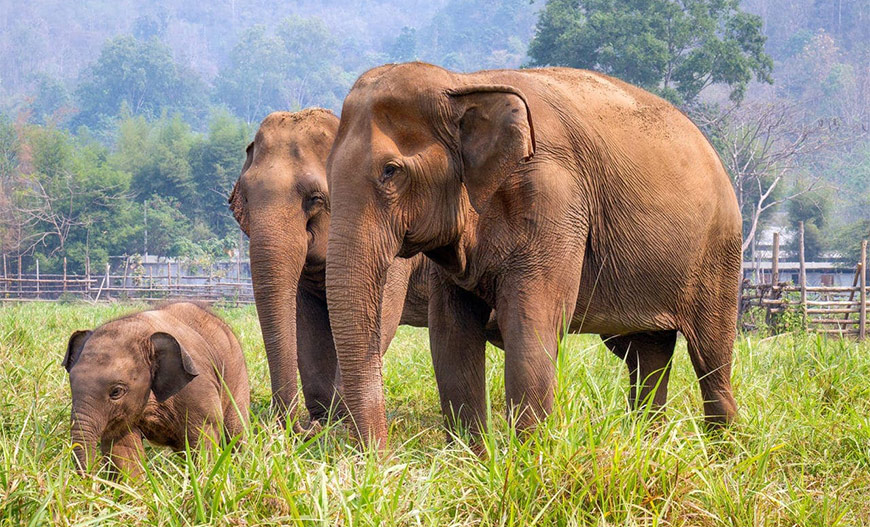
Adding to the tragedy, the shift from logging to tourism did nothing to improve conditions for elephants, now often forced to carry tourists around for rides, or trained in cruel ways to perform silly tasks and performances for tourists.
It should go without saying that these kinds of elephant experiences is something you should avoid, as visiting a place that treats the animals with respect and empathy will provide a much better experience, both for you and the elephants.
Thankfully as awareness of the issue has been growing in recent years, there are now more elephant sanctuaries that treat the animals humanely than ever, and this article is intended as a quick primer on the ones we know through both experience and third parties to be both reputable and ethical in their practices.
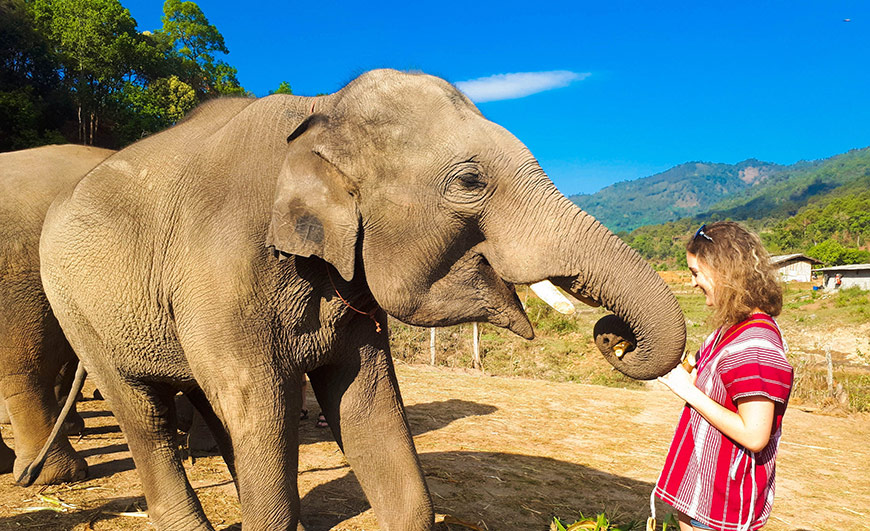
Before moving on to the specific sanctuaries, it’s worth bearing in mind a few rules of thumb when picking a place to visit that can immediately rule out many so called “sanctuaries”. If a centre, sanctuary or camp advertises rides (both bareback and with a carrying device), performances, shows, or interaction with baby elephants, you should steer far clear as all these practices are considered extremely harmful to the elephants by experts. On the other hand, spending time with the elephants in terms of walking with them, watching them play and bathe, as well as feeding them are perfectly acceptable activities that many excellent sanctuaries engage in. Some rehabilitation centres will also allow you to help bathe the elephants yourself, though this should be discouraged unless the elephants are recently rescued and thus do not know how to wash themselves properly.
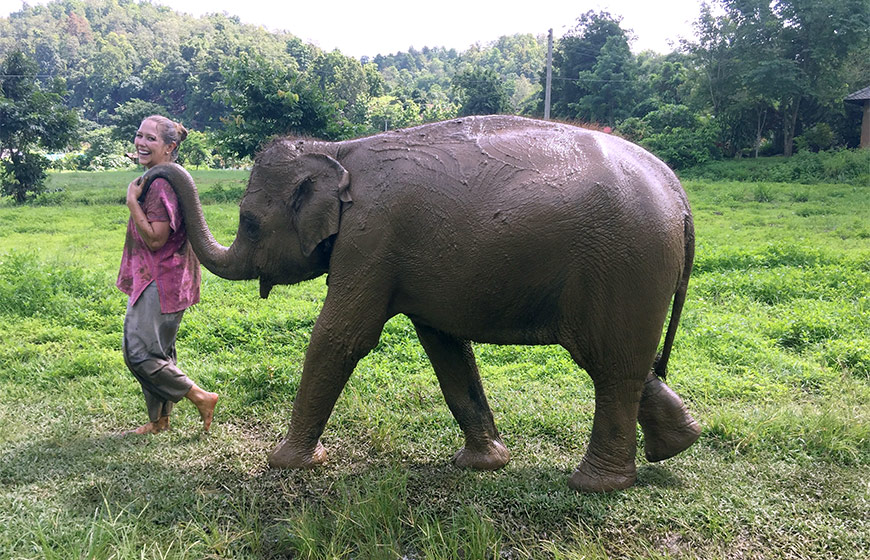
Moving on to our recommended sanctuaries, we start in Thailand where Elephant Nature Park in Chiang Mai is perhaps the most famous elephant sanctuary of them all, and is considered a pioneer in terms of animal welfare and how it handles its collection of retired aging elephants. The price for a visit varies depending on length, with the cheapest (1 day) costing 2500THB. ENP also offers “volunteer” programs where travellers may stay for as long as a week helping to care for the elephants. Northwest of Chiang Mai, near Pai, is an amazing reforestation project known as “Conserve Natural Forests”. Originally intended solely as a reforestation initiative, they quickly found themselves in a position of being able to purchase abused elephants from nearby riding camps and using their reforested land to rehabilitate and eventually reintroduce the elephants to the wild.
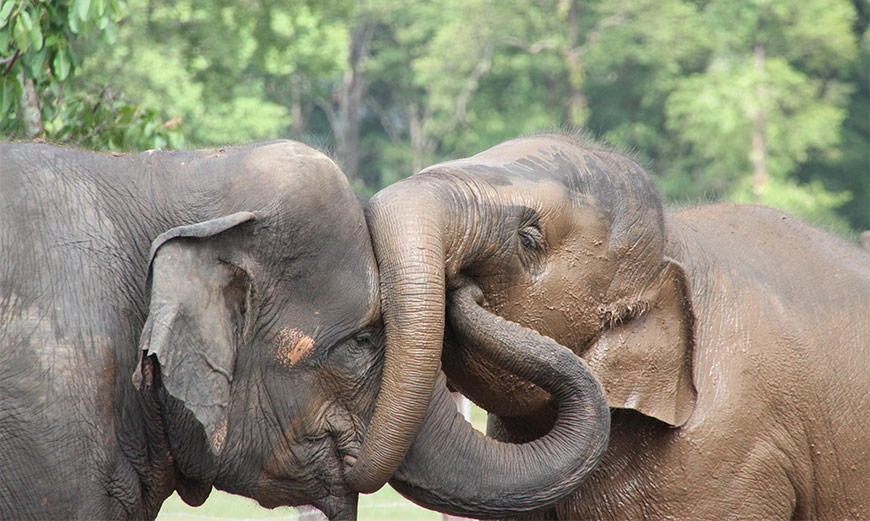
A visit requires a minimum donation of 1000THB (though subsequent visits can then be made for free), and visitors should be aware that you are not always guaranteed to see elephants, as it depends on whether there are any in active rehabilitation at the time. Regardless, learning about their efforts to protect the threatened forests of Northern Thailand is worth a visit on its own.
Finally in Thailand, Elephant Hills in Khao Sok is also excellent, and is one of the few sanctuaries that are completely and 100% chain free.
Elephant Valley Project in Mondulkiri, Cambodia is considered the best of the best when it comes to strict adherence to the welfare of the elephants. Here you can only observe the elephants from a distance, or as the centre calls it: “watch elephants being elephants”.
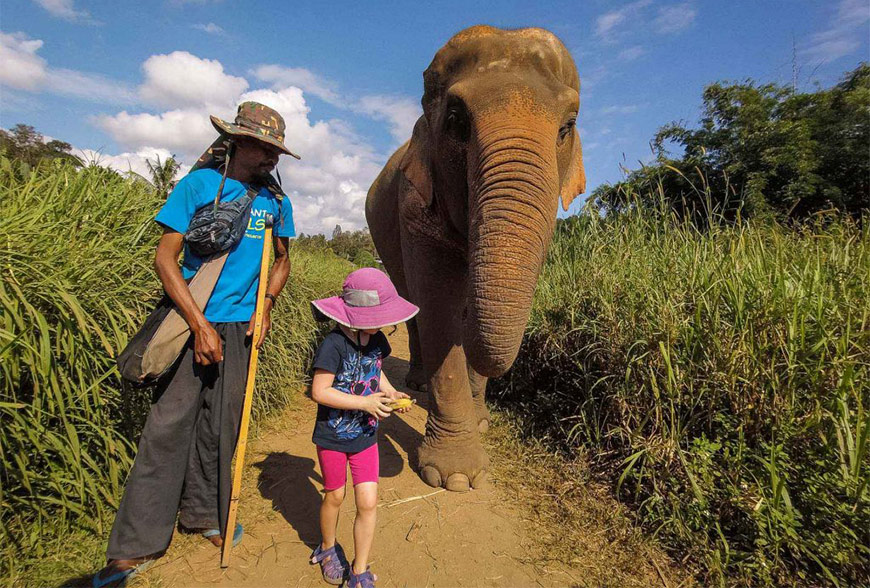
Over in Laos, there are only a few hundred remaining wild elephants, and this is a problem Elephant Conservation Centre in Sayanbouli aims to tackle with their program of “borrowing” working female elephants and breeding them, allowing the offspring to live a “wild” life. As elephants are still widely used for logging in Laos, most of the elephants here are either rescued or retired logging elephants.
Out of the four countries mentioned, Vietnam has the lowest number of wild elephants, with experts estimating as few as 65 individuals remaining. Until very recently, it was impossible to see elephants ethically in Vietnam, but a recent change of policy in Yok Don National Park has changed this. As recently as 2018 they ceased offering any kinds of rides or performances, opting instead for a more natural approach. The benefits of this has been seen immediately, with the elephants now happier, healthier, and more able to form the deep and complex bonds between each other that the species is famous for.